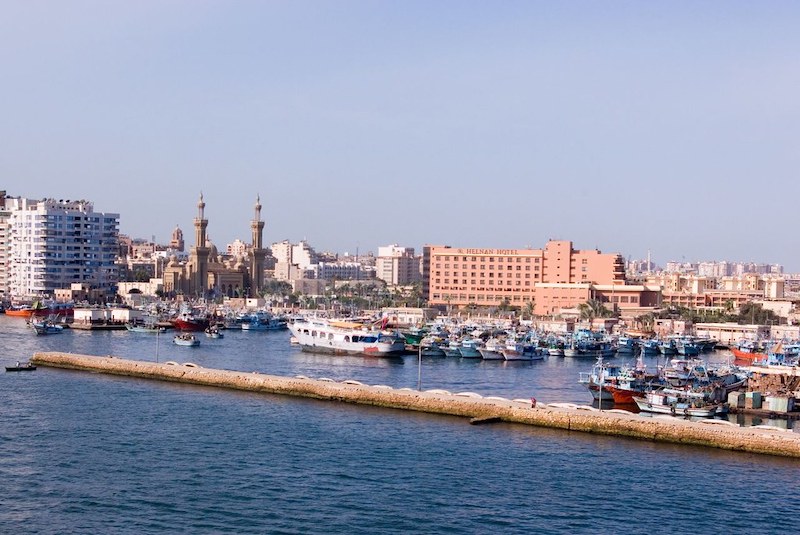On March 26, 2025, the Egyptian Council of Ministers approved the draft state budget for the 2025/26 fiscal year (July to June), which will soon be submitted to the House of Representatives for adoption, expected in the coming weeks. For the first time, this budget is part of a multi-year framework covering the next three fiscal years.
This reflects a proactive budgetary shift in line with the commitments made to the IMF under the Extended Credit Facility. Growth is anticipated at 4.5%—higher than the IMF’s forecast of 4.3%—with a budget deficit estimated at 7.3% of GDP, or EGP 1.5 trillion (EUR 26.5 billion). The government is targeting a primary surplus of EGP 795 billion (EUR 14 billion), or 4% of GDP, compared to 3.5% in 2024/25, and intends to reduce the gross public debt ratio from 88% to 82.9% of GDP.
Public revenues would increase to EGP 3,100 billion (EUR 55 billion, +18%), a stable level in relative terms around 15% of GDP, while expenditures would reach EGP 4,600 billion (EUR 82 billion, +19%), or 22% of GDP. At the consolidated level of the general government (including the State and public economic entities), revenues would reach EGP 7,200 billion (EUR 128 billion, +23%) for expenditures of EGP 8,500 billion (EUR 151 billion, +20%), or 34% and 40% of GDP respectively – allowing the consolidated debt ratio to be brought below the threshold of 92% of GDP (compared to 101.9% in 2024/25).
The tax strategy is based on broadening the tax base and strengthening the administration’s credibility in tax management, in order to restore taxpayer confidence.
As early as October 2024, a first package of 20 tax measures was presented by the Minister of Finance. It included a tax amnesty scheme, a cap on late payment penalties at 100% of the initial tax, a single system for SMEs, and a simplified resolution of accumulated tax disputes (an extension of Law No. 79/2016), which has already made it possible to process nearly 30,000 cases, generating EUR 5.3 billion in additional revenue, an amount that could reach EUR 14.1 billion by the end of June 2025. The government intends to pursue this objective of increasing tax revenue (EGP 2,600 billion, or EUR 45.9 billion, 13% of GDP).
Strengthening the social component is a key priority for the government in order to respond to the social impact of the various economic crises. Social spending would increase by 0.4% of GDP to EGP 732.6 billion (EUR 13 billion, 16% of expenditure), in line with the IMF target. Food subsidies would increase by 19%, but fuel subsidies would be halved. Social transfers would reach EGP 54 billion (EUR 955 million), supported by the revaluation of Takaful and Karama subsidies. Health spending would amount to EGP 53.2 billion (EUR 940 million), to which would be added EGP 15.1 billion (EUR 267 million) devoted to state-funded treatments for low-income households without coverage. Finally, EGP 679 billion (EUR 12 billion) would be allocated to the public sector salary increase planned for July 2025, including an increase in the minimum wage to EGP 7,000 (EUR 124), a basic living allowance, a standard bonus, and a pay rise for low-wage earners.
The budget also provides for a productive recovery through support for key sectors.
The recently presented new export subsidy program would mobilize EGP 45 billion (EUR 795 million), including EGP 38 billion (EUR 671 million) for priority sectors and EGP 7 billion (EUR 124 million) for exceptional needs. To ensure timely payment of subsidies, the authorities had decided that payments due from July 1, 2024, would be made within 90 days.
In addition, half of the amounts due before this date will be paid in cash to businesses, and the other half can be applied to taxes, including electricity and gas bills. More broadly, financing for productive sectors would triple to reach EGP 78.1 billion (USD 1.4 billion), including EGP 8.4 billion for tourism, EGP 5 billion for industry, EGP 3 to 5 billion for MSMEs, and EGP 5 billion for the conversion of vehicles to natural gas.
Source: French Embassy in Egypt










Réagissez à cet article